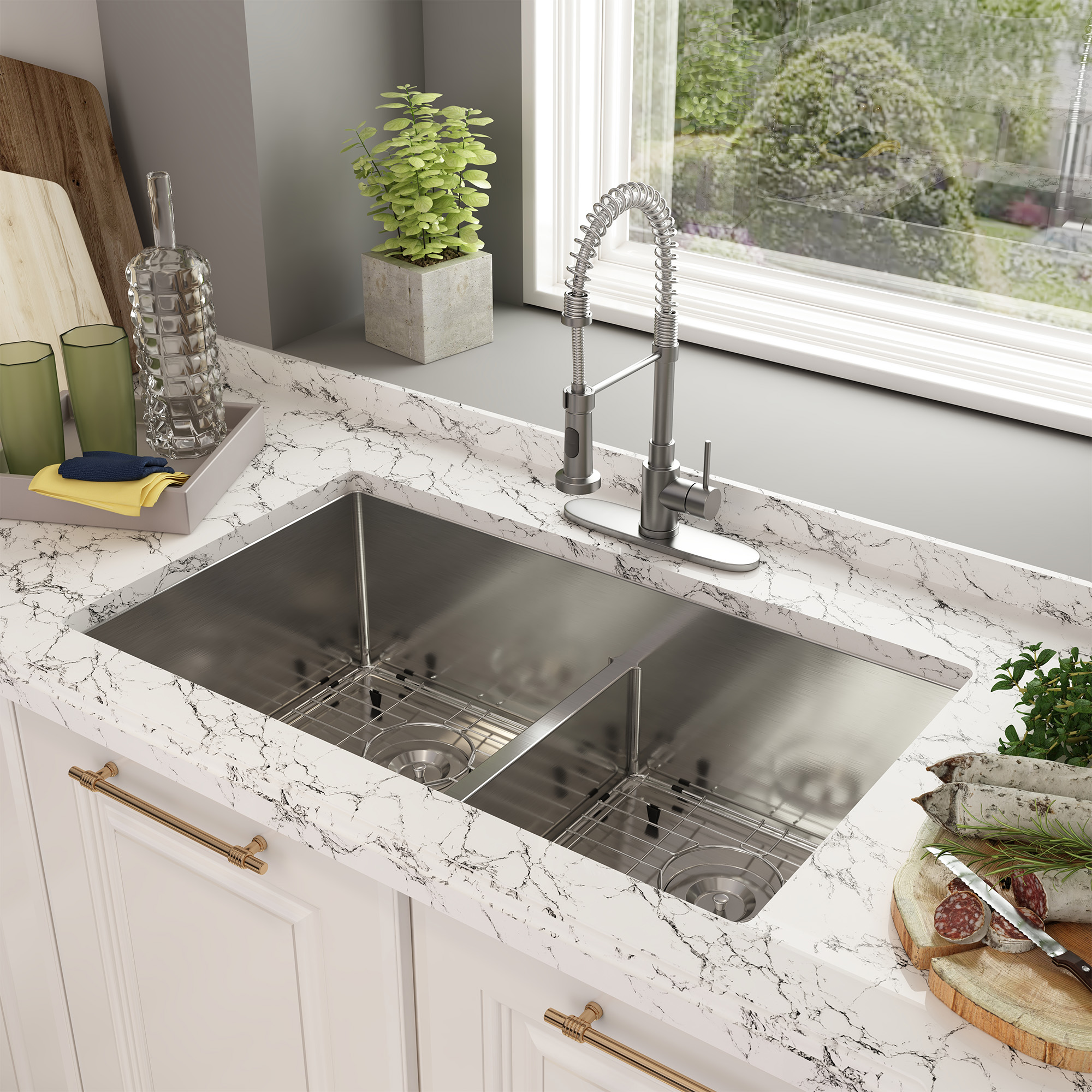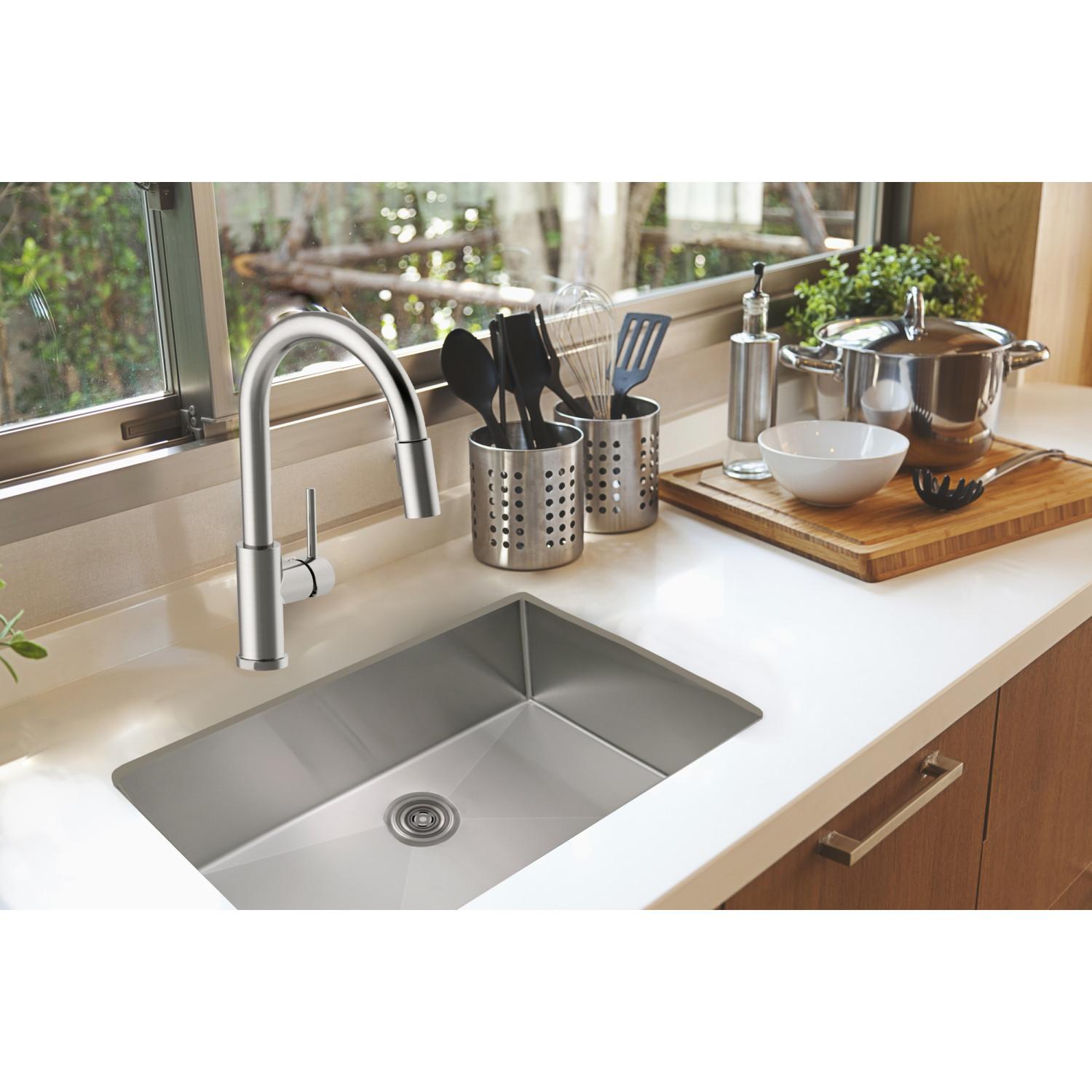Why does my kitchen sink gurgle? A gurgling kitchen sink can be both annoying and concerning, as it may indicate an underlying plumbing issue. When water drains slowly or creates a gurgling noise, it suggests there is a blockage or improper venting within the plumbing system. In this comprehensive guide, we will explore the common causes of a gurgling kitchen sink, including clogged pipes, improper venting, and plumbing system malfunctions. By understanding these causes, you can identify the problem and take appropriate steps to resolve it. Let’s dive into the world of plumbing and unlock the secrets to addressing a gurgling kitchen sink.
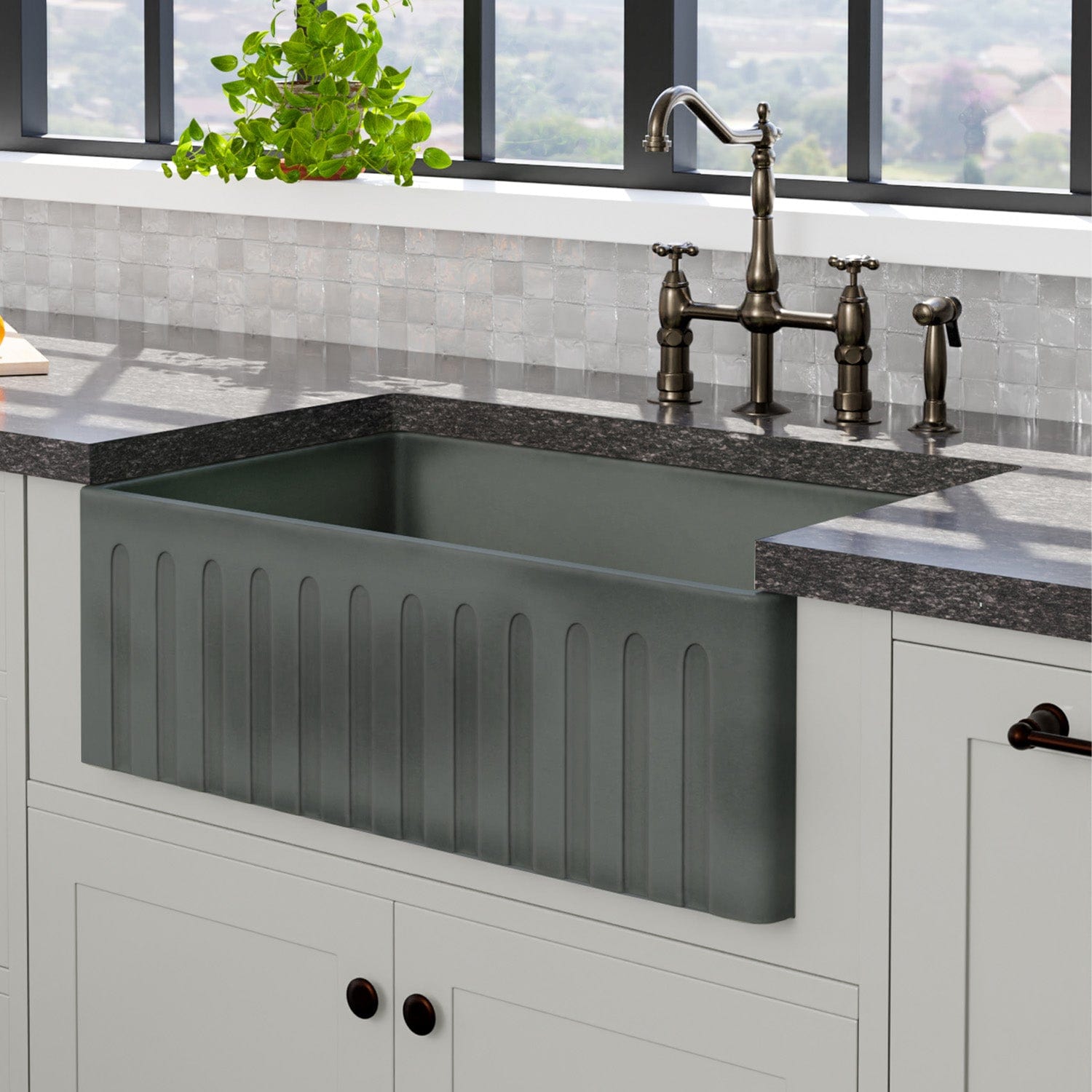
Clogged Pipes:
One of the most common causes of a gurgling kitchen sink is a clogged pipe. Consider the following factors:
- Grease and food debris: Over time, grease, food particles, and other substances can build up in the pipes, causing blockages and restricting the flow of water. This can lead to gurgling sounds as air tries to escape through the blockage.
- Foreign objects: In some cases, non-biodegradable items, such as utensils, napkins, or even small toys, can accidentally fall into the sink and cause blockages in the pipes. These objects can trap air and result in gurgling noises as water tries to pass around them.
Improper Venting:
Proper venting is essential for the effective drainage of water in a plumbing system. Improper venting can cause air to become trapped, resulting in gurgling sounds. Consider the following factors:
- Blocked vent pipes: Vent pipes, which allow air to enter the plumbing system and facilitate the smooth flow of water, can become blocked with debris or animal nests. When the vent pipes are blocked, air cannot escape, leading to gurgling sounds as water tries to drain.
- Insufficient or improper venting: In some cases, the plumbing system may have been improperly installed or may not have a sufficient number of vent pipes. This lack of venting can cause air pressure imbalances, leading to gurgling noises when water drains.
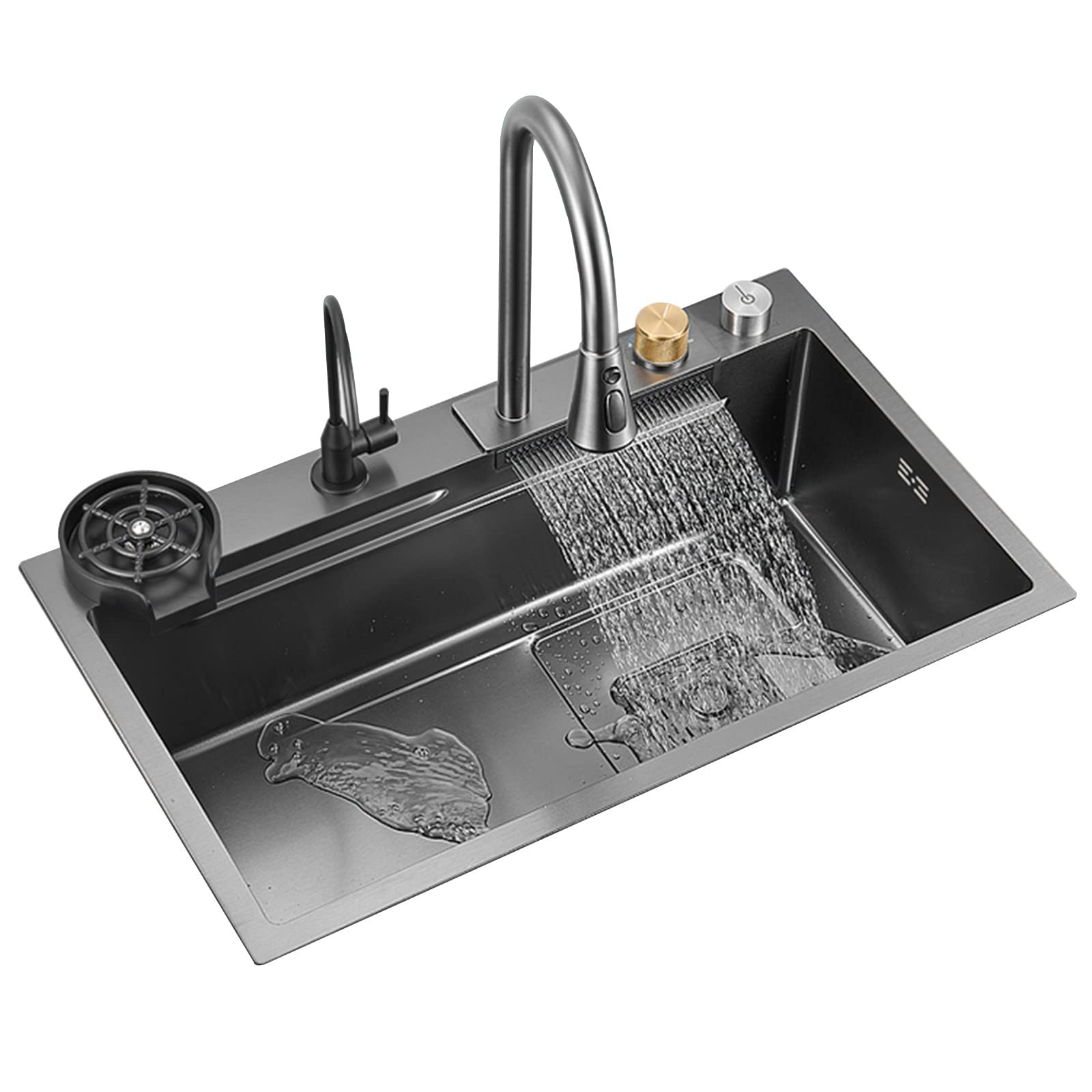
Plumbing System Malfunctions:
Certain malfunctions within the plumbing system can cause gurgling sounds in the kitchen sink. Consider the following factors:
- Incorrect pipe slope: Properly installed plumbing pipes have a slight slope to facilitate the flow of water. If the pipes are not correctly sloped, water may accumulate in certain sections, leading to air blockages and gurgling sounds.
- Backflow prevention device issues: Backflow prevention devices, such as check valves, prevent contaminated water from flowing back into the clean water supply. If these devices malfunction or become stuck, they can impede water flow and create gurgling noises as air is trapped.
- Septic tank problems: If your house is connected to a septic tank system, issues such as a full tank or a malfunctioning drainage field can cause water to flow back into the plumbing system. This can lead to gurgling sounds in the kitchen sink faucet.
What are the styles of kitchen sinks?
The kitchen sink is not only a functional necessity but also an essential design element in any kitchen. The right kitchen sink can enhance both the functionality and aesthetics of the space. With a wide array of styles available, it’s important to know the options when selecting a kitchen sink.
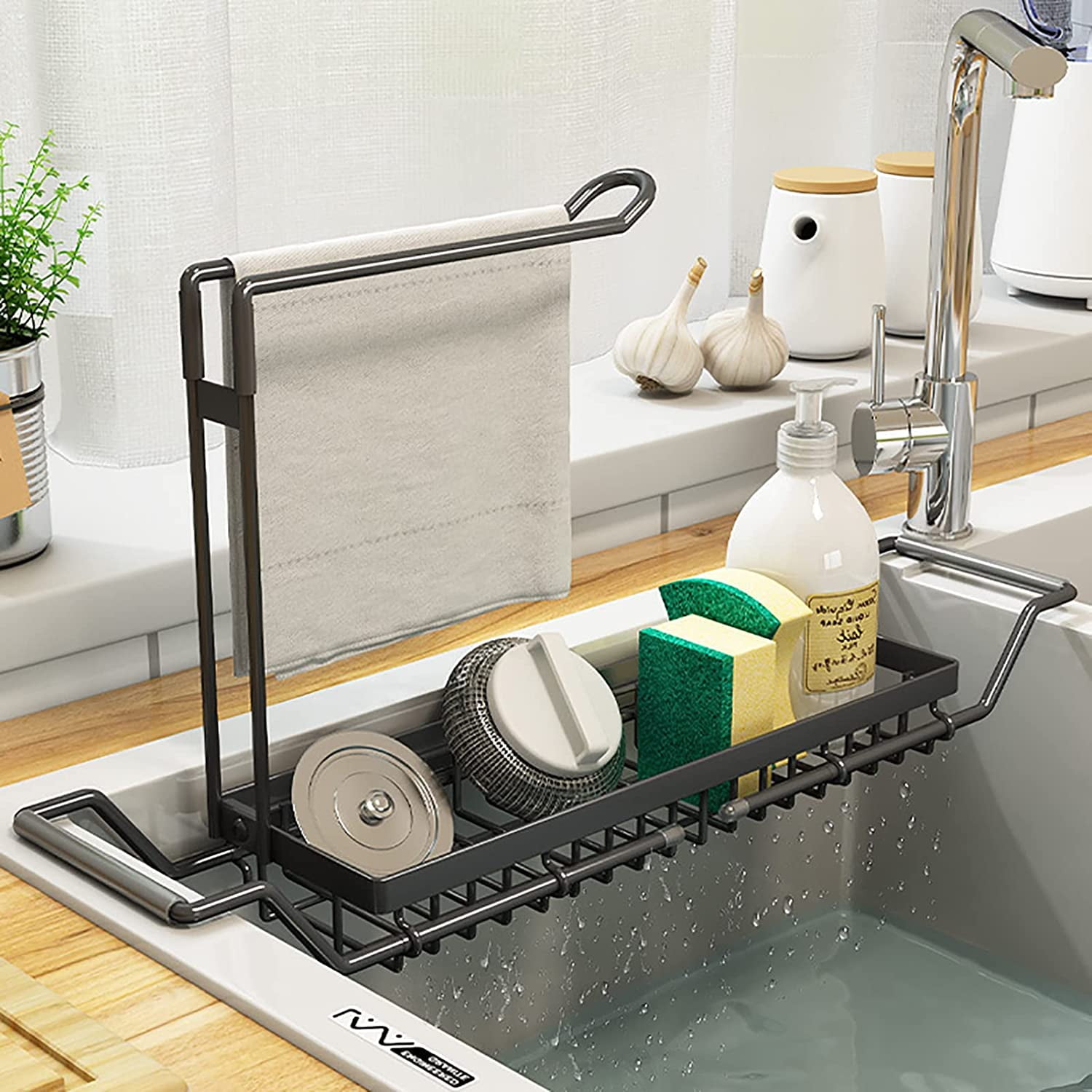
Undermount Sinks:
Undermount sinks are mounted underneath the countertop for a sleek and seamless look. Consider the following options:
- Stainless steel undermount sinks: This popular choice provides a modern and minimalist look. Stainless steel is durable, resistant to stains and corrosion, and easy to clean, making it a practical choice for any kitchen.
- Granite composite undermount sinks: These sinks are crafted from a mix of crushed granite or quartz with resin. They offer a natural stone appearance, durability, and resistance to scratches, heat, and stains. Granite composite sinks come in a variety of colors and textures to suit different kitchen designs.
Top Mount Sinks:
Top mount sinks, also known as drop-in or self-rimming sinks, are installed by dropping them into a hole cut out in the countertop. Consider the following options:
- Porcelain top mount sinks: These sinks offer a classic and timeless look. They are made from ceramic materials coated in enamel, providing a smooth, glossy, and easy-to-clean surface. Porcelain sinks are available in a range of colors and shapes to match various kitchen styles.
- Acrylic top mount sinks: Acrylic sinks are lightweight, affordable, and resistant to stains, scratches, and chipping. They come in different colors and can be easily molded into various shapes. Acrylic sinks require gentle cleaning to avoid scratching the surface.
Farmhouse Sinks:
Farmhouse sinks, also known as apron front sinks, are characterized by their exposed front panel that extends below the countertop. Consider the following options:
- Fireclay farmhouse sinks: Crafted from a clay and glaze mixture, fireclay sinks have a glossy and non-porous surface. They are resistant to stains, scratches, and heat. Fireclay farmhouse sinks offer a traditional and rustic aesthetic, adding charm and character to the kitchen.
- Stainless steel farmhouse sinks: These sinks provide a contemporary twist on the farmhouse style. They offer a durable and versatile option that complements various kitchen designs. Stainless steel farmhouse sinks are known for their functionality, ease of cleaning, and resistance to staining and corrosion.
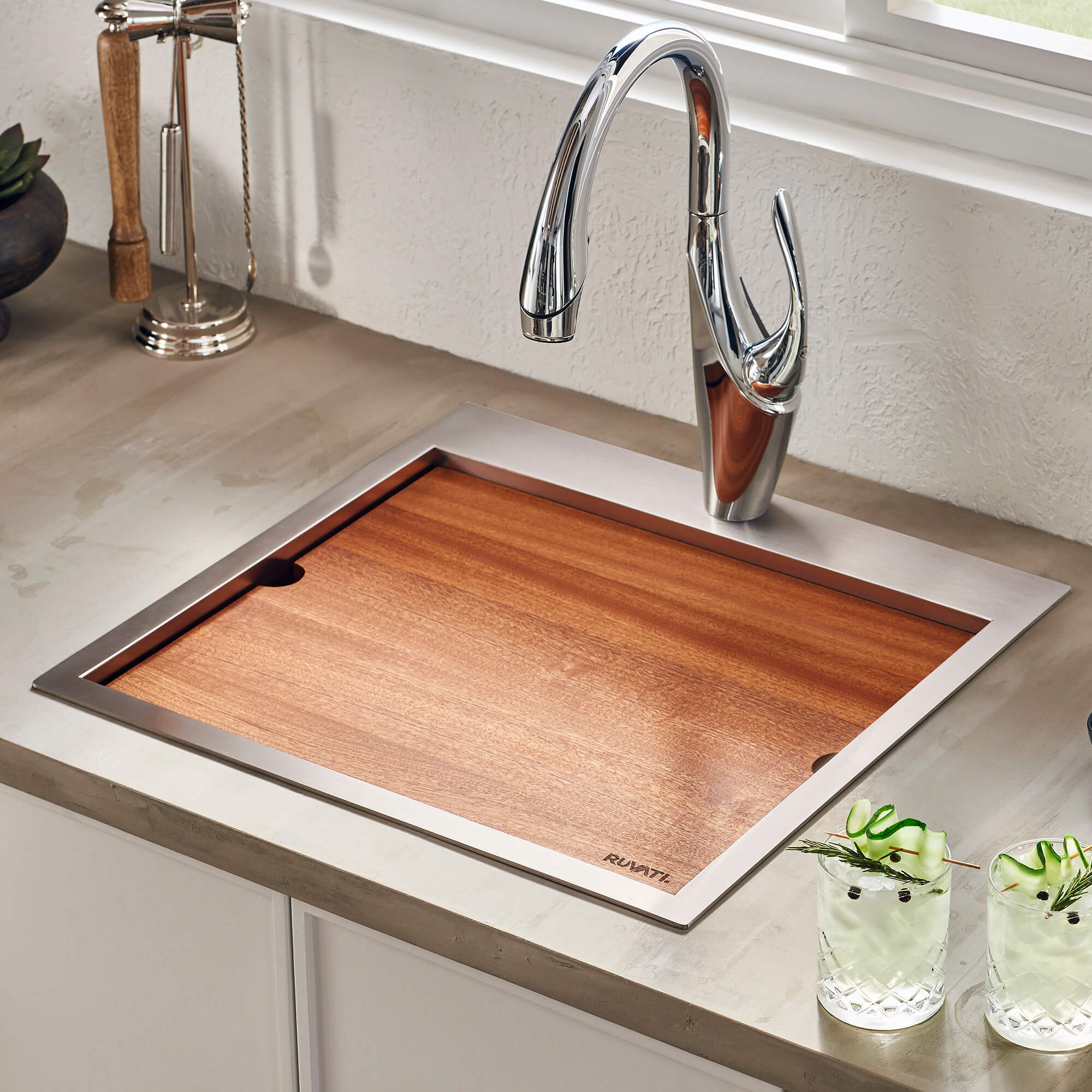
Double-Bowl Sinks:
Double-bowl sinks feature two separate bowls, providing versatility and practicality for food preparation and cleaning. Consider the following options:
- Equal-sized double-bowl sinks: These sinks have two bowls of the same size and depth. They offer symmetry and balance in the kitchen, allowing you to perform multiple tasks simultaneously.
- Offset double-bowl sinks: These sinks have two bowls of different sizes and depths, with one larger and one smaller bowl. Offset double-bowl sinks provide versatility and flexibility, catering to various kitchen needs, such as washing large pots and pans in the bigger bowl while using the smaller bowl for food preparation.
Conclusion:
A gurgling kitchen sink can be indicative of underlying plumbing issues, including clogged pipes, improper venting, and plumbing system malfunctions. When water drains slowly and creates gurgling sounds, it is important to identify the cause and take appropriate action. Consider inspecting the pipes for blockages, ensuring proper venting, and checking for any plumbing system malfunctions. In some cases, it may be necessary to seek professional plumbing assistance to fully address the issue. Regular maintenance and preventative measures, such as avoiding dumping grease down the drain and using drain guards to catch debris, can help prevent future gurgling sink problems.
